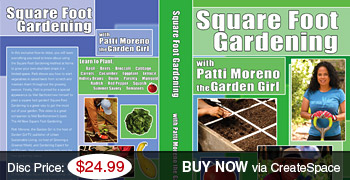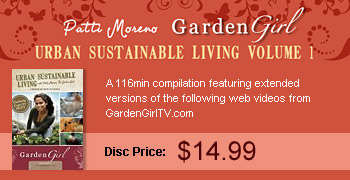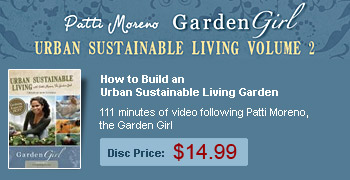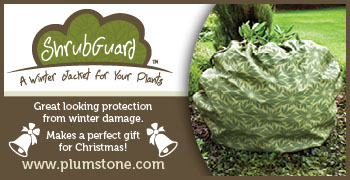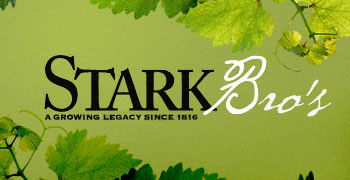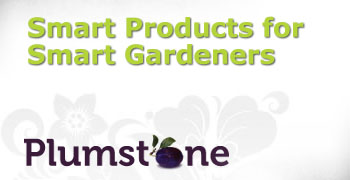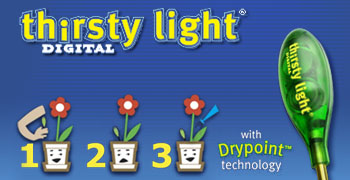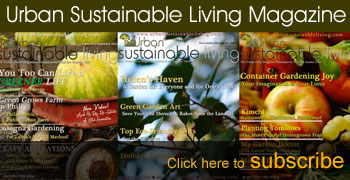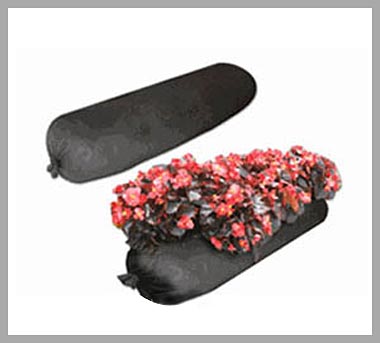Soil and Compost
The soil you use is one of the most important factors in the success of your garden. There are a lot of fertilizers out there on the market, but one of the safest and most affordable ways to fertilize your garden is to make your own compost at home. I've tried a lot of methods of building my own organic planting soil, and I'm going to share them all with you in these videos. From kitchen scraps and newspaper to leaves and yard waste, one man's trash is another man's treasure. You'll find that a lot of what you throw away can actually go back into your garden, with beautiful results! Watch these carefully, you could save a lot of money by fertilizing your garden with the resources available all around you.
Composting Kitchen Scraps with a Worm Bin
If you ever thought you were scared of worms, now is the time to get over it. A worm bin is a perfect eco-friendly solution for anybody with a small patio or garden. It also is ideal for condo dwellers where there are rules and regulations against composting. The worm castings (or worm ‘poo’) make the best natural fertilizer, and its power can be extended by brewing up worm tea to apply when watering all your plants. Not only is your homemade compost great for your garden, it reduces waste in landfills by getting your kitchen scraps to work for you and your edible landscape.
Read more...Healthy Organic Soil and the Importance of pH
I'm here with my friend William Moss, who is going to give us a quick lesson on how to prepare a raised bed for planting. We have all we need; a good location with about 6-8 hours of sunlight, and a raised bed that needs to be cleared out and prepared for the next planting season.
The first thing to do, especially if you are working in a raised bed that was used last season is to remove last year's debris. Never fear, the "debris" will not go to waste. It will go right into my compost bin.
Read more...The Best Use for Fallen Leaves in the Garden? Make a Compost Bin!
It’s time to start getting the cold weather crops into the ground so today, I am joined by my friend, William Moss and we are talking about sowing seeds in a raised bed garden. See how simple it is to usher in a bountiful harvest.
We are planting lettuce, radishes, Asian Greens and onions. Onions do take a while so we need to get them in the ground now.
Read more...First Aid for a sick plant: Compost Tea
Compost tea works! I have seen it have miraculous results. Healing sick plants – now that’s my cup of tea!
Hold the sugar. This is NOT your cup of tea. This is tea for your plants. In this video, I am joined by my friend Mark Highland of Organic Mechanics. You may have met Mark before, he’s my soil expert. Mark has spent most of his career researching soil and creating a unique blend of high quality soil that will do wonders for your garden. His unique blend includes compost, worm castings, coconut fiber, pine bark and perlite. The ratios of these ingredients are perfect after a decade of researching and getting it just right. The unique biology of the ingredients creates a sort of “Super food” for your plants. The macro pores produce a poly-saccharine that is sticky to the touch and works hard to retain the moisture in the soil, further nourishing your plants.
Read more...How to Make Compost
I am joined here by my good friend and colleague William Moss to talk about one of my favorite topics, composting! As you know, composting is the environmentally safe way to improve the quality of your soil by using natural waste from your yard as well as kitchen scraps. It is the easiest way to be a responsible citizen of the earth. Compost is free fertilizer and an excellent soil amendment.
William and I are using the simplest version of a compost bin which is 19 gauge hardware that comes in a roll. You can make a cylinder with it, as you see here, and use kitchen ties to bind it together.
Read more...
